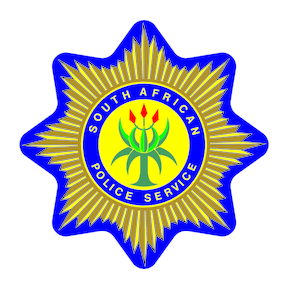Violence against women and children is one of the biggest challenges that South Africa is facing at the moment. The weapons that are most commonly used to kill women and children are firearms. Firearms are also frequently used in domestic violence. Research has shown that women and children often fall prey to violence in around their places of residence. In most instances, the offender is known to the victim.
Many children injure or fatally wound others or themselves with firearms that are left unattended by irresponsible firearm owners.
Government and the South African Police Service (SAPS) are doing everything in their power to fight violence against women and children by means of legislation. The Domestic Violence Act, 1998 (Act No 116 of 1998) and the Firearms Control Act, 2000 (Act No 60 of 2000) give women and children all over South Africa a real chance to be protected against violence.
What can you do when you or someone else is exposed to violence at home?
- The Domestic Violence Act, 1998 allows you to obtain a protection order against any form of violence from your nearest magistrate’s court.
- Please do not be scared to report any acts of violence or abuse that take place in your home to the SAPS.
- The SAPS will come to your house if you inform them that you are being treated in a violent or abusive manner.
- When the SAPS members arrive at your house, tell them if there is a firearm in the house. The SAPS will search the premises and seize any firearms that are found.
- If the abuser has a firearm, the SAPS will establish whether he or she has a firearm licence. If he or she does not have a licence, the police will charge him or her with the illegal possession of a firearm.
How does the Firearms Control Act, 2000 protect a person against violence?
The Act determines the following:
- Before a person is granted a firearm licence, he or she must obtain a training certificate by writing a test and undergoing practical training in the handling of a firearm.
- The SAPS checks the background of every person who applies for a firearm licence.
- The SAPS will not issue a competency certificate to a person if he or she is dependent on any substance, mentally unstable or shows a tendency towards violence.
- a final protection order in terms of the Domestic Violence Act, 1998 has been issued against him or her;
- he or she has threatened to kill or injure himself, herself or another person by means of a firearm or any other dangerous weapon;
- he or she is mentally unstable, displays violent behaviour or is dependent on any substance such as drugs or alcohol;
- he or she does not store the firearm in a safe place; and
- he or she provides false information in order to obtain a firearm.
A person will automatically be declared unfit to possess a firearm if he or she has been convicted in court of, amongst others, -
- any offence involving violence or sexual abuse;
- any offence mentioned in the Domestic Violence Act, 1998 where the person is sentenced to imprisonment without the option of a fine; and
- the abuse of alcohol or drugs and dealing in drugs.
PROTECT YOURSELF AND YOUR CHILDREN! REPORT ILLEGAL FIREARMS OR THE ABUSE OF FIREARMS IMMEDIATELY TO THE SAPS.
Phone SAPS Crime Stop on
08600 10111
08600 10111
What can you as a parent do to protect your children against firearm violence?
- Teach your children about the dangers that they might encounter, dangers such as hot stoves, poison, fire, and firearms.
- Teach your children that a firearm is a deadly weapon and not a toy.
- Make sure that your firearms are kept in a firearm safe and that your children do not get hold of the keys to the safe.
- Teach your children that an air gun is still a dangerous weapon. Although air guns have been deregulated, the abuse of an air gun is regarded as an offence.
- An adult should be present whenever a child uses an air gun.
STOP!
DON’T TOUCH.
LEAVE THE AREA.
TELL AN ADULT
DON’T TOUCH.
LEAVE THE AREA.
TELL AN ADULT
Below are some important links from SAGA, the South African Gunowners Association, which may cover some legislation relating to firearms and gun ownership in South Africa:
Firearm-Free Zones Notice (7 May 2004)
Final Regulations to the Firearms Control Act (29 March 2004)
Firearms Control Amendment ACT 22/12/2003 Gazette 25863 PDF file
Firearms Control Amendment Bill: voting 19 Sep 2003
FIREARMS Control Amendment Bill [B28-2003] -->.pdf file
Proposed Compulsory Specification For Small Arms Shooting Ranges 15/8/2003 774k PDF file
Accreditation Regulations (start 1/7/2003) (Gazette 25153 30/6/2003)
Current Firearm Legislation (link updated 26 November 2002)
Legislation in Parliament (New item 31 October 2002)
Arms and Ammunition Act No 75 of 1969 (mainly current)
FOR ALL OF YOUR SAFETY AND SECURITY NEEDS, PLEASE FEEL FREE TO CONTACT US AT EC SECURITY AND OUR TRAINED PROFESSIONALS WILL ASSIST AND ADVISE YOU












0 comments:
Post a Comment